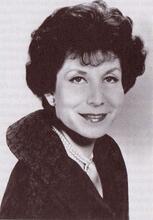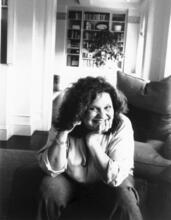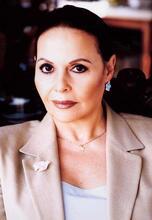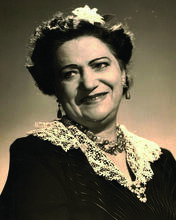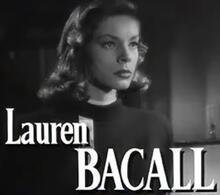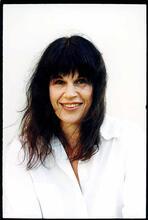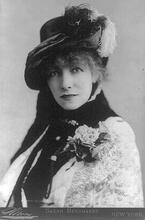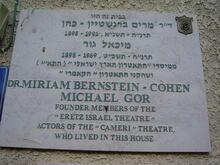Glika Bilavsky
Glika Bilavsky’s activities ran the gamut of secular Yiddish culture, from her political activism to her theatrical career. The niece of the Zionist leader and writer Nahum Sokolow, Bilavsky was deeply enmeshed in both the arts and politics even before she married Morris Bilavsky, a fellow Yiddish actor and member of the Bund. She fled Poland with her fiancé in 1907 and settled in Copenhagen, where the pair married and created a Yiddish theater troupe. While living in Denmark, Bilavsky studied drama and performed in both plays and movies. In 1921, the couple moved to New York, where Bilavsky occasionally performed in Yiddish theater but spent much of her time volunteering for Hadassah, United Jewish Appeal, and the women’s auxiliary of Mizrahi.
Article
As an actor on the Yiddish stage, Glika (Degenshteyn) Bilavsky participated early on in the renaissance of secular Yiddish culture in the twentieth century.
Bilavsky was born on January 23, 1884 (or on May 6, 1891, according to one source), into a prosperous family engaged in agricultural trade. She was a niece of Nahum Sokolow, the Zionist leader and Hebrew writer. She did not receive a traditional Jewish education, but attended a public elementary school in her hometown of Glechine, Congress Poland, and continued her education at a middle school (pro-gimnaziia) in Warsaw.
In 1907, Glika fled Poland with her fiancé, Morris Bilavsky, a fellow Yiddish actor and member of the illegal Bund (General Jewish Workers’ Union in Lithuania, Poland, and Russia). The two married and settled in Copenhagen, Denmark, where they established an amateur Yiddish theater group that later turned professional. Bilavsky also studied drama and debuted both on the Danish stage and in the Danish cinema in 1920. During their fifteen-year residence in Copenhagen, the couple traveled frequently to Sweden and Norway to appear in Yiddish productions.
In 1921, Bilavsky and her husband immigrated to New York City. Over the following four decades, Bilavsky played occasionally on the Yiddish stage, lectured, and was active in Hadassah, United Jewish Appeal, and the women’s auxiliary of Mizrahi, as an organizer of its Yiddish-speaking branches. Glika Bilavsky died on April 4, 1964, in New York City.
AJYB 66: 572.
Leksikon fun Yidishn Teater, s.v. “Glika Bilavksy,” and “Moris Bilavsky”.
Lifson, David. The Yiddish Theater in America (1965).
Obituary. Forverts (April 6, 1964).
Sandrow, Nahma. Vagabond Stars: A World History of Yiddish Theater (1977).

